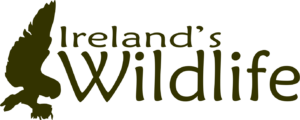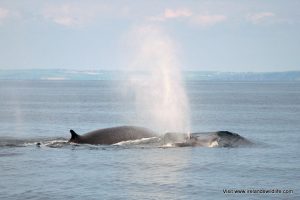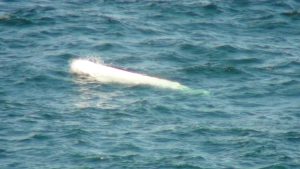 Do you have a wildlife nut in your family? Are you struggling for inspiration for a suitable Christmas gift for someone in your life who is literally “for the birds”? Well, fear not – we’ve got a suggestion.
Do you have a wildlife nut in your family? Are you struggling for inspiration for a suitable Christmas gift for someone in your life who is literally “for the birds”? Well, fear not – we’ve got a suggestion.
Why not get them a gift that will not only delight them, but will also help contribute to the conservation of the wildlife they love? Lots of wildlife related charities offer a fantastic range of gifts, vouchers, courses and more that could be just the thing for your wildlife obsessed loved one this Christmas.
Here are a few suggested places to help you get started….
The Birdwatch Ireland Shop
At Birdwatch Ireland’s online shop you’ll find everything you need for the wildlife nut – from the impressive “Beginning Birdwatching” kit at €199 (which includes includes quality Opticron binoculars, one year’s Birdwatch Ireland membership, a decent field guide and much more to kick start a hobby that will last a lifetime), to camera nestboxes, to books, optics, tripods, feeders and toys.
The Birdwatch Ireland Shop has something for everyone – and best of all, when you buy from them the profits go to directly help Ireland’s largest conservation charity with their work.
The Irish Whale and Dolphin Group Gifts
The Irish Whale and Dolphin group is dedicated to the further understanding and conservation of Ireland’s whale and dolphin species. The waters around the Irish coast offer some of the most spectacular whale watching in Europe, with species like fin whales and humpback whales.
They offer a wide range of gift options – from a voucher / certificate entitling the bearer to a trip on Ireland’s only dedicated Whale and Dolphin Research Vessel, the R.V. Celtic Mist once she’s re-launched after a refit in the spring of 2012, to a variety of gift membership packs for individuals and families (many including an IWDG weekend whale watching course), to caps, t-shirts, DVDs and more. Remember, by buying direct you’re supporting the organisation’s valuable conservation work.
WWF – “Species in a Bucket”
Get a bucketful of cute and cuddly endangered species – symbols of your sponsorship of the real thing through the WWF. By “adopting” these cuddly toys your money goes to help fund the WWF’s on going global conservation programmes to save some of the world’s most iconic species.
There are plenty other options out there, of course, and lots of scope for wildlife related gifts for Christmas, but by considering a wildlife charity when you’re buying yours, you can rest assured that you’re giving back to the wildlife as well.
Keep a look out for more Christmas gift suggestions for the wildlife nut in your life soon.














2 comments
Vincent Hyland
Supporting wildlife charities, allows humans to continue their work and get paid for it. What % of money donated goes directly to the animals? Perhaps we donate to help people, who work for charities, to do what they are passionate about? Being a private company, I get paid for my efforts and at the same time help educate about wildlife. What’s the difference? Tax status?
Calvin
Hi Vincent, thanks for the comment.
Of course education is a crucial part — perhaps the most important part — of conservation, and it’s great that you are able to make a commercial success doing something that is incredibly worthwhile.
At the same time, while I am a little sceptical about the focus of some conservation charities, I also know that organisations like Birdwatch Ireland, the Irish Whale and Dolphin Group, the RSPB and many more do a tremendous amount of good work to raise awareness, further our understanding of some of our most threatened wildlife and the habitats they occupy, and benefit the animals directly through projects to conserve and manage their habitat and indirectly through lobbying legislators.
To suggest that the only difference between genuine not-for-profit conservation organisations and private enterprise is their tax status, and that they’re just creating jobs to help people who want to work with wildlife, is, I think, a tad disingenuous. Would be interesting to see what other people make of this.